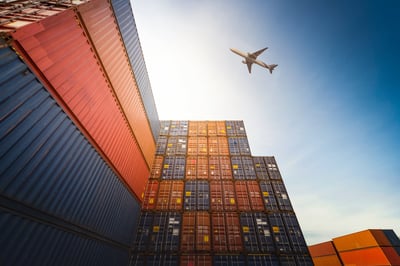- Home
- About
- Services
- Tools & Resources
- Client Info
- Request Info
- Carrier Tools
- Contact Us
- Get a Quote
- Français
The reality of being audited as an importer is not one to dismiss or think only happens to “other importers.” In the event you are audited by CBSA, are you aware of everything that is included in the valuation of your goods? If not, you may not be reporting additional costs accurately.

As an importer, you are well aware of the nature of the logistics and supply chain industry and the heightened complexity inherent within it. Valuation of goods is certainly an aspect of the process that benefits from deepened knowledge and familiarity. Yet when it comes to making mistakes with valuation of goods, the most common mistake we see companies making is not overlooking details or missing key factors but simply a breakdown in communication.
In other words, the most common mistake we see importers make when it comes to goods valuation happens when inter-departmental communication is lacking or fails altogether. When the accounting department does not talk to the logistics department, multiple invoices might be received for goods or services that relate to imported goods. Then, when it comes time to declare customs value for the related goods, these invoices are not at all considered.
If you have not done an accurate valuation of your goods, and you have a breakdown in communication between your accounting and logistics teams, you risk facing consequences in the event your company is audited.
Underpaying duties or taxes can expose your company to additional costs plus interest on underpaid amounts. If this happens, your profit margin will decrease—sometimes significantly so.
When it comes to goods valuation, getting it right the first time will save you from a possible audit or surprise duties and additional costs. Here are the best practices for valuation of goods:
You can reduce penalties/fees/audits, or avoid them in the first place. We can help with both. Customs consulting is what we’ve been doing for more than half a century. Connect with us today.